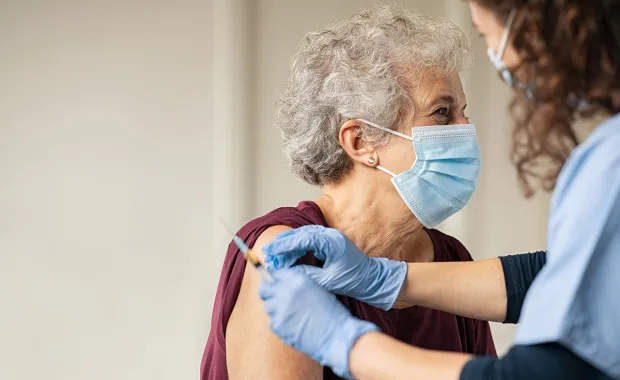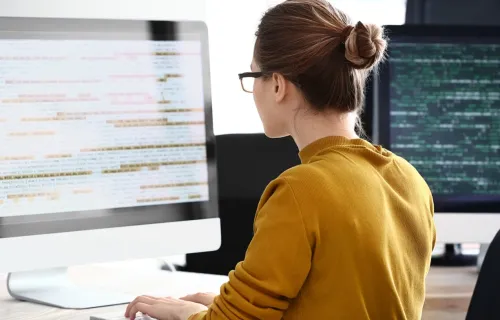“Rokobotti” could reduce the time required for each vaccination event by 50%
Given the complex requirements for data input in patient healthcare information systems (HIS), administering a vaccination often requires two professionals: one to perform the vaccination itself and the other to record the required information in the HIS. In most cases, data recording takes longer than the vaccination procedure. Additionally, manual data entry can result in data quality issues, such as incomplete data, incorrect selections or spelling errors. Having to perform mass vaccinations every day has intensified all of these problems.
A new CGI solution in Finland uses robotic desktop automation (RDA) and robotic process automation (RPA) to make it faster to enter COVID-19 vaccination data and transfer it to the HIS. The solution, locally called Rokobotti, can reduce the time required for completing a vaccination event by as much as 50%.
Responding to urgent needs
The need to speed up vaccination events has arisen in recent discussions with healthcare authorities. In response, “Together with our robotics experts, we developed a solution that can automate most of the vaccination data recording,” says Lasse Mäkelä, a healthcare sector expert at CGI in Finland. “With the Rokobotti solution, one person can handle both the vaccination and data entry roles, or two professionals can get a lot more done, faster.”
The Rokobotti solution allows users to enter required information more quickly and accurately by easing data entry with a form containing mostly predefined data, such as the injection site and the method of vaccination. Robotic automation then enters the data into the HIS, making it available without delay for reporting and monitoring. Nationally required data also is stored automatically in Finland’s “KANTA” archive for health information.
Freeing professionals for other work
CGI has been helping Finnish healthcare organizations increase their use of automation for some time. For example, our solution for the City of Tampere automates the creation of laboratory requests needed for COVID-19 testing based on symptom assessments and online scheduling. The automation solution handles thousands of cases weekly, freeing professionals for other work.
“Although the City of Tampere has already promoted automation and digitalization in the services of its citizens, the Coronavirus epidemic has brought a lot of new needs to this development and made the need more visible,” says Assistant Chief Physician Jukka Karjalainen from the City of Tampere. “The problems have been solved together with various actors (e.g., CGI) and significant relief has been achieved in the workload caused by the pandemic. It is hoped that similar cooperation will continue and be further strengthened. The development method can be used for other matters as well. In this way, the challenges posed by the pandemic are used for development in the future.”
Enabling rapid product development
CGI in Finland recently made developing technological innovations to solve societal problems a priority of its corporate social responsibility efforts. As part of this commitment, a new innovation accelerator program was launched to help transform ideas into problem-solving applications. “Soon after launching our in-house innovation accelerator, Lasse Mäkelä was on the doorstep with the idea for Rokobotti,” explains Matti Häkkinen, Senior Vice-President of Public Sector Services for CGI in Finland. “We hope Lasse's innovation finds to speed COVID-19 vaccinations for municipalities, cities and hospital districts.”
CGI is the leading provider in Finland of both HIS and intelligent automation services. Rokobotti is a good example of how this expertise combined to create a needed solution in just weeks. “Working together with in-house experts has enabled our robotic team to create a solution that really helps our clients,” says Tuomo Pursiainen, an intelligent automation consultant at CGI in Finland.





